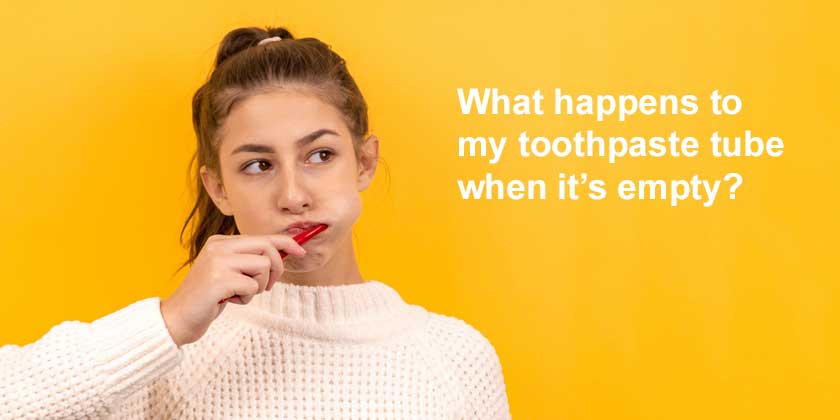Mark Hall from BusinessWaste.co.uk ponders the plastic toothpaste tube problem
Every year 300 million toothpaste tubes go to landfill in the UK. Spread end-to-end that's about 75,000 kilometres of plastic – enough to circle the globe twice – and it all results from us cleaning our teeth using toothpaste from tubes that can't be recycled. The global toothpaste industry is worth tens of billions per year, and we at UK waste management company BusinessWaste.co.uk think it’s time the house was put in order.
Toothpaste is an essential hygiene item that people will always buy. However, the problem lies with the packaging; does it really need to come in a plastic tube? The problem is that they are usually made of different types of plastics, and many brands have a layer of aluminium to keep the paste fresh, which makes it a recycling nightmare. So, inevitably, most tubes end up in landfill.
On average it takes 500 years for a toothpaste tube to fully biodegrade, meaning that every tube you have ever used in your entire lifetime could still be out there in a big hole in the ground. There are some alternatives, for example pump-action toothpaste tubes can be easier to recycle, but you will need to check with your local council to see if they can be collected.
Because people are becoming more concerned about their plastic footprint, some companies are developing clever solutions to reduce the amount of plastic we throw away, and this includes dental hygiene. We've compiled a list of some of the best plastic-free toothpaste alternatives for you to sink your teeth into:
• Glass jars of toothpaste – Many zero waste shops now stock variants on this, either as a powder, or as regular toothpaste in glass jars. The jars can then be reused or recycled.
• Toothpaste tablets – These are just be popped in your mouth and crunched up like a sweet and then continue to brush like normal for pearly white teeth.
• Solid toothpaste – You can buy this either on a stick that you apply to your teeth, or as a bar, then brush as usual.
• Make your own at home – websites offer recipes for making your own toothpaste, often including baking soda and coconut oil.
While you’re at it, why not invest in a bamboo toothbrush or recyclable heads for your electric toothbrush? But, if making the change to a plastic-free alternative is a bit much, one toothpaste brand is going the extra mile to reduce the volume of plastic tubes heading to landfill.

Leading brand Colgate has launched plastic-free initiatives, including a new vegan-friendly toothpaste that comes in recyclable packaging made from the same material as milk bottles. Colgate has also joined the Terracycle scheme, where you can take your empty toothpaste tubes and plastic brushes to collection points for specialised recycling where they can be turned into new items such as park benches.
While Colgate brushes up the competition, one thing’s for sure, we all need to step up and do our bit to reduce toothpaste tubes going to landfill. Let’s stop filling the earth’s cavities with dental plastic waste.
For more information about BusinessWaste.co.uk, visit https://www.businesswaste.co.uk/
To discover more about Colgate’s vegan-friendly toothpaste, click HERE





















